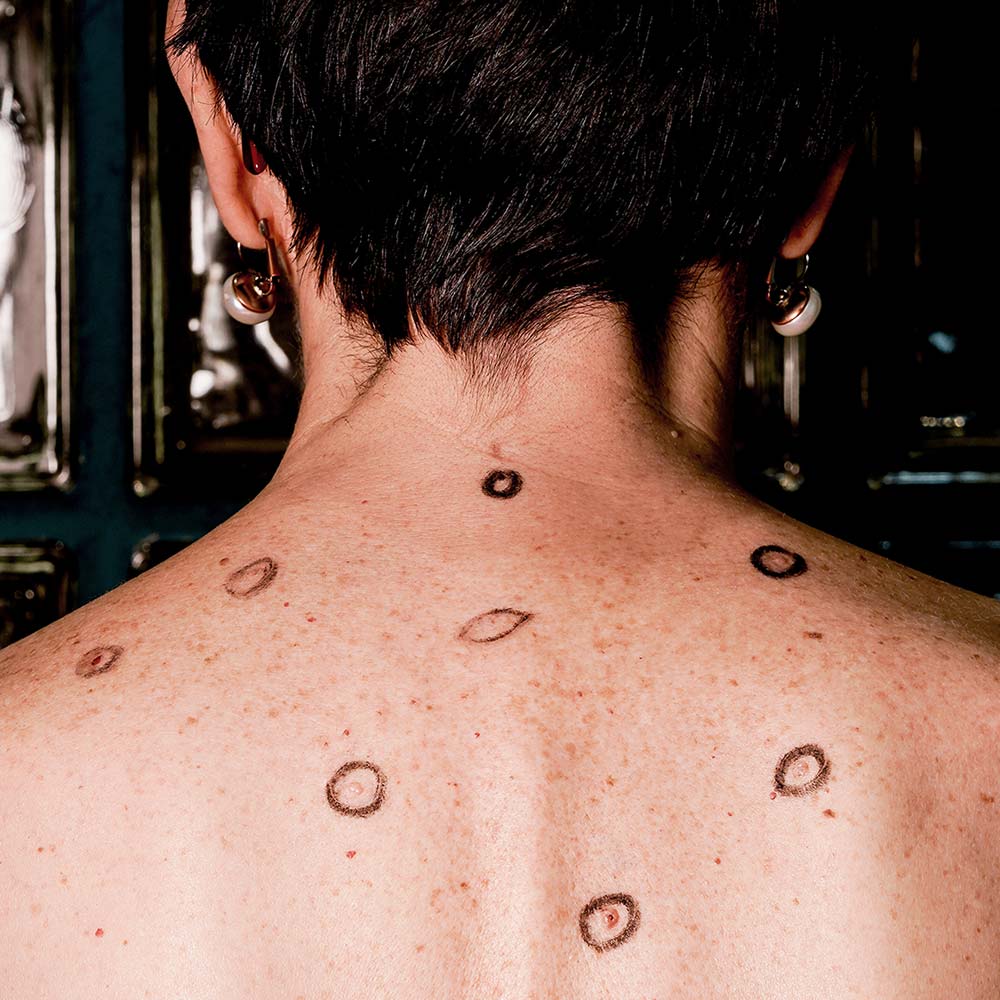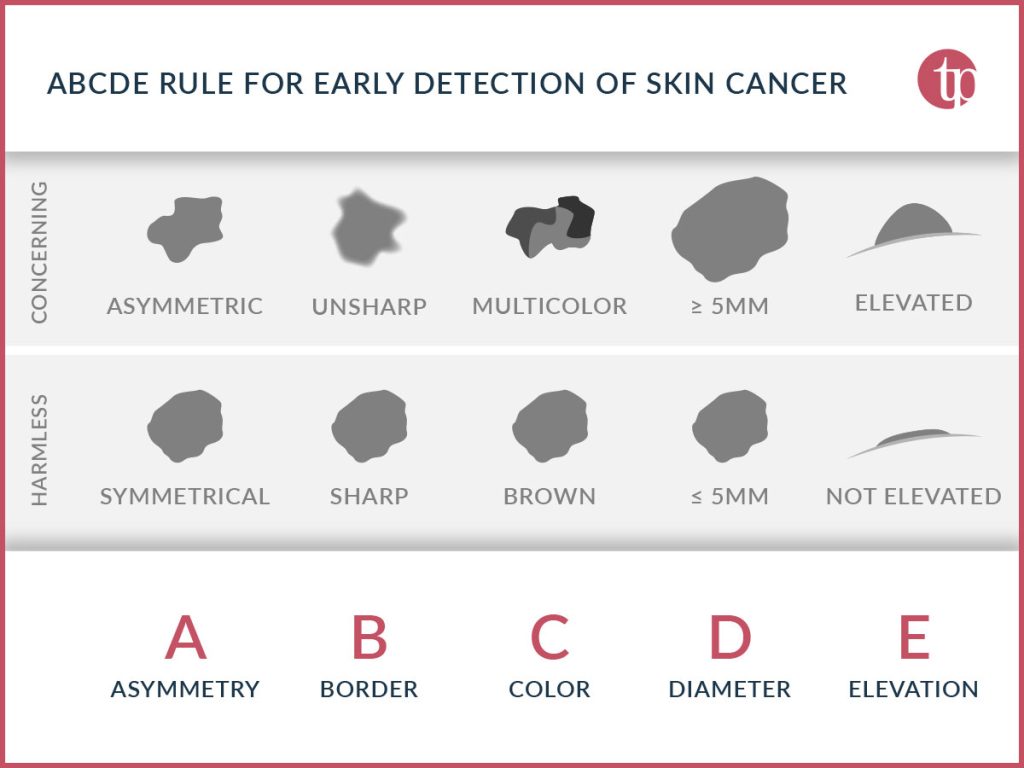Skin cancer prevention

A skin cancer screening, also called skin cancer screening, is an examination of the skin of the entire body. The aim is the early detection of skin cancer precursors, as well as white (basal cell carcinoma, squamous cell carcinoma) or black skin cancer (malignant melanoma).
Conspicuous moles are examined in addition to the clinical inspection with a so-called reflected-light microscope (dermatoscope), which allows a 10x magnification.
From the age of 35 at the latest, it is recommended to have an annual HKV (skin cancer screening) performed by a dermatologist.
If a conspicuous skin change is found, further steps are discussed and, if necessary, tissue samples are taken to finally clarify the diagnosis.
Before an HKV examination, existing nail polish should be removed and make-up should be avoided. Jewelry or piercings must also be completely removed.
Skin cancer self-examination
Regular skin screening can lead to complete healing in many cases through early detection of malignant skin changes. Likewise, regular self-examination of the skin or even by the partner is useful.
The ABCDE rule names common warning signs of changes that may be related to skin cancer:
- A as in asymmetry
- B like border
- C as in color
- D as in diameter
- E as in elevation
FAQ
Questions?
Skin cancer screening is recommended annually from the age of 35. In cases of noticeable skin changes, a dermatologist should be consulted promptly.
The frequency of skin cancer screening and recommended intervals may vary depending on age, skin type, personal risk factors, and individual medical history. It is generally recommended that in addition to annual skin cancer screening with a dermatologist, you should also examine your skin yourself on a regular basis.
Noticeable changes may include:
- New moles or moles that have changed in appearance
- Skin lesions that change (size, color, shape)
- Skin changes that itch, hurt or bleed
- Changes in skin texture (scaling, cracks, bulging).
It is also important to take protective measures to protect the skin from UV radiation, such as using high SPF sunscreen (SPF 50), or avoiding direct sun exposure during midday, most especially in the summer.
The exam usually begins with a discussion of medical history and risk factors for skin cancer, such as skin type, family history, UV exposure and previous skin cancers. Next, your treating physician will examine your entire skin from head to toe to identify any changes that may indicate skin cancer. Conspicuous moles are additionally examined with a reflected-light microscope (dermatoscope) with 10x magnification.
Skin cancer screening (SCS) should be performed to detect and treat skin cancer early:
- Skin cancer is the most common type of cancer in humans
- UV radiation is an important risk factor for skin cancer
- Skin cancer can form on any part of the body, but often on exposed areas such as the face, hands, and forearms (called sun terraces).
- Early detection and treatment of skin cancer can reduce the risk of complications
- An HKV is a quick and easy way to detect and treat skin lesions
Of course, you can also come to our private practice as an SHI-insured person, but in this case you will have to pay for the costs yourself. You are then a self-payer vis-à-vis our doctors. The cost of a skin cancer screening is 100 euros.
Before skin cancer screening, nail polish should be removed from finger and toe nails, as skin cancer can also develop under the nails in rare cases. Body jewelry, such as stud earrings, piercings, etc., can also make it difficult to detect small changes. We also ask you to refrain from wearing make-up.
To make a screening as effective as possible, we recommend:
- Regularity: it is recommended that you have regular examinations by a dermatologist in order to detect changes in your skin at an early stage
- Checking your own skin: It is important to check your own skin regularly for changes and have a dermatologist examine any changes that are concerning
- Consider risk factors: People at high risk for skin cancer, such as those with previous skin cancers or a lot of UV exposure, should get checked more often.
- Take protective measures: it is important to take protective measures to protect the skin from UV radiation, such as using high SPF sunscreen (SPF 50), wearing long clothing and head coverings, and avoiding direct sunlight during midday.
- Immunosuppressive medications (e.g. in the context of organ transplantation): please inform your dermatologist about this.

